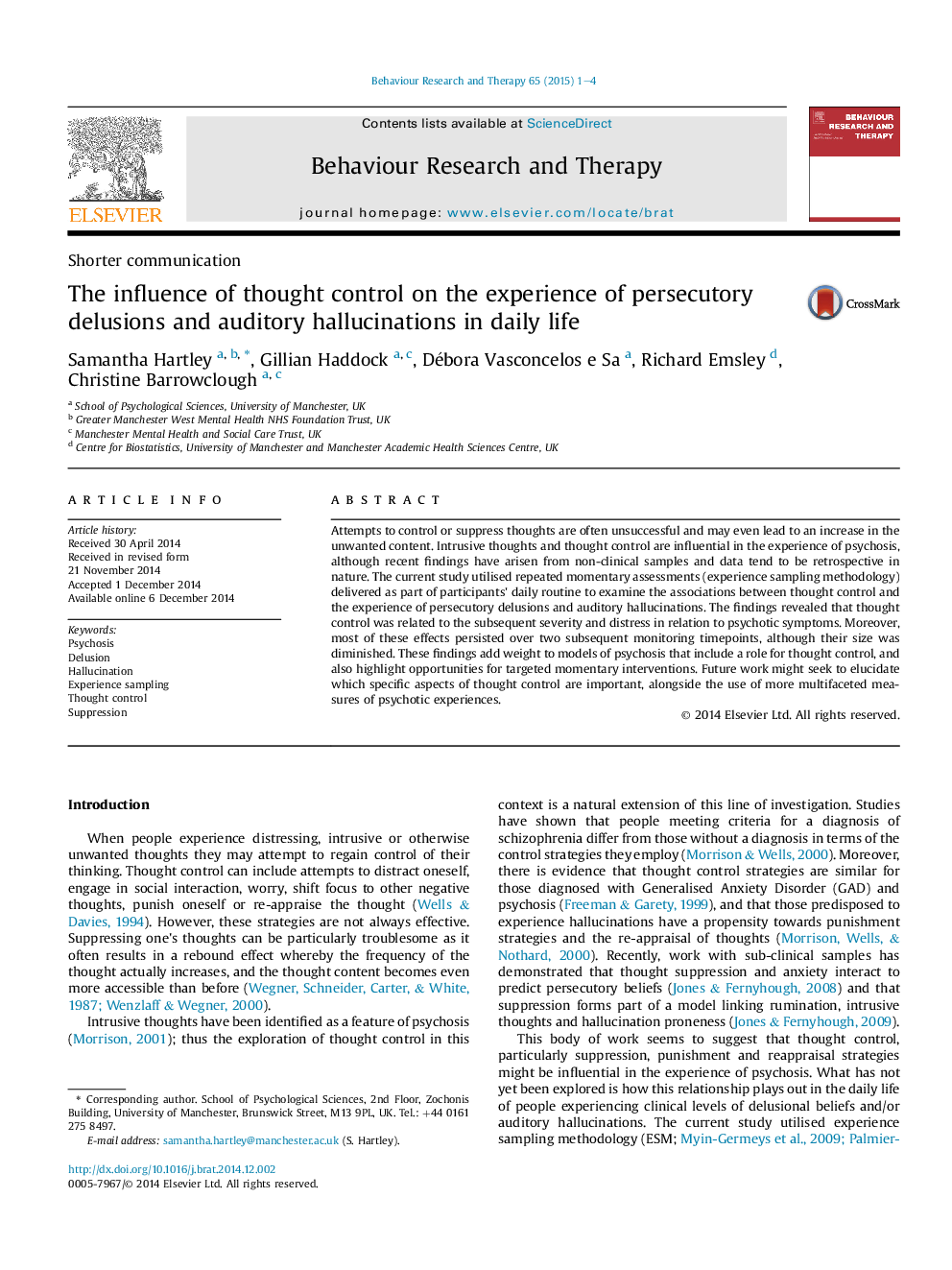| Article ID | Journal | Published Year | Pages | File Type |
|---|---|---|---|---|
| 901814 | Behaviour Research and Therapy | 2015 | 4 Pages |
•Explored associations between thought control, paranoia and auditory hallucinations.•Used experience sampling methodology to gather momentary reports on experiences.•Thought control related to both the severity and distressing nature of experiences.•The effects were significant both concurrently and between time-points.
Attempts to control or suppress thoughts are often unsuccessful and may even lead to an increase in the unwanted content. Intrusive thoughts and thought control are influential in the experience of psychosis, although recent findings have arisen from non-clinical samples and data tend to be retrospective in nature. The current study utilised repeated momentary assessments (experience sampling methodology) delivered as part of participants' daily routine to examine the associations between thought control and the experience of persecutory delusions and auditory hallucinations. The findings revealed that thought control was related to the subsequent severity and distress in relation to psychotic symptoms. Moreover, most of these effects persisted over two subsequent monitoring timepoints, although their size was diminished. These findings add weight to models of psychosis that include a role for thought control, and also highlight opportunities for targeted momentary interventions. Future work might seek to elucidate which specific aspects of thought control are important, alongside the use of more multifaceted measures of psychotic experiences.
